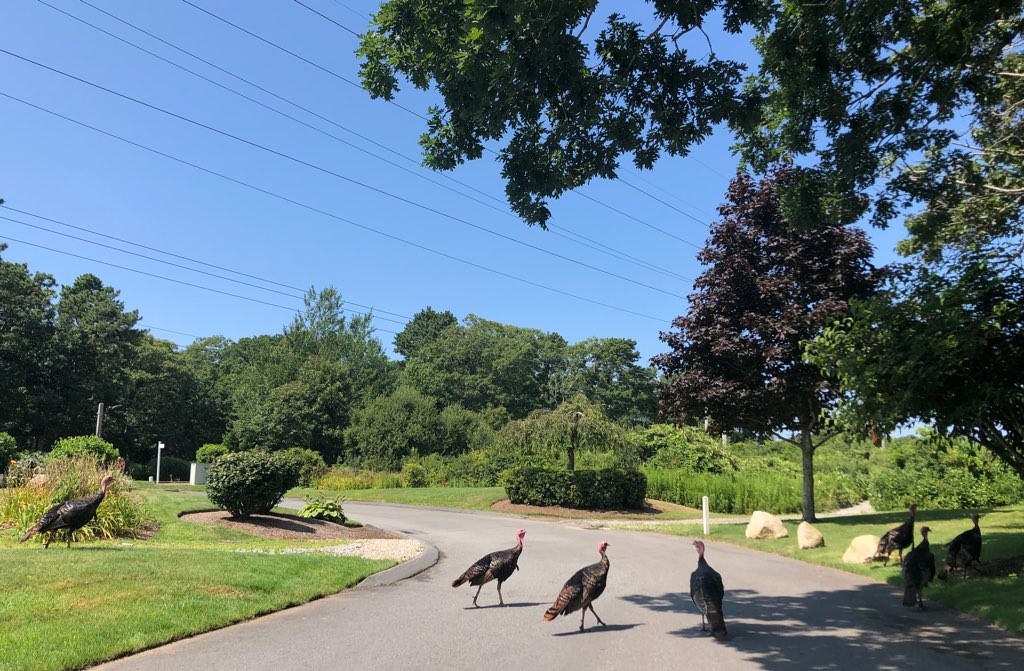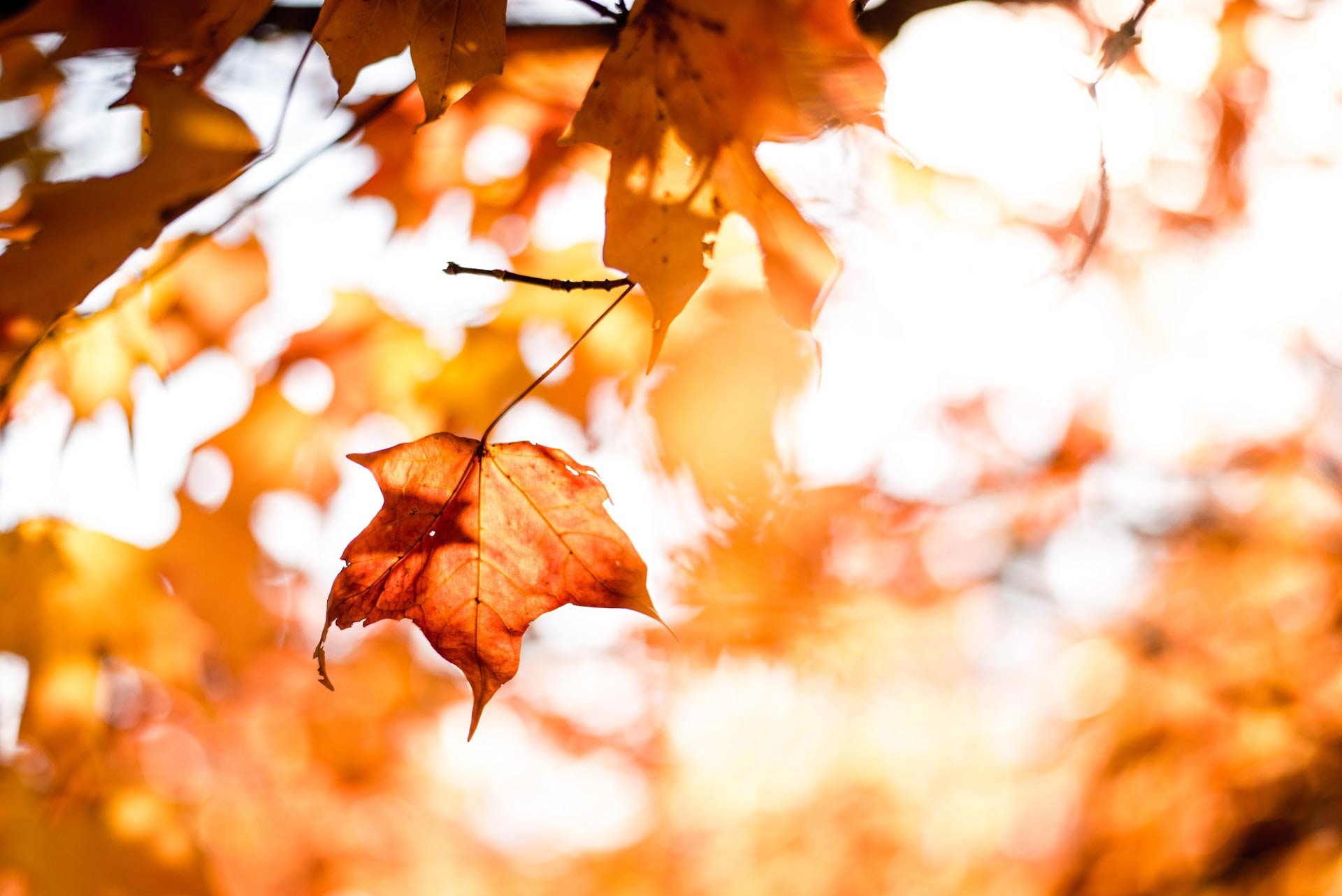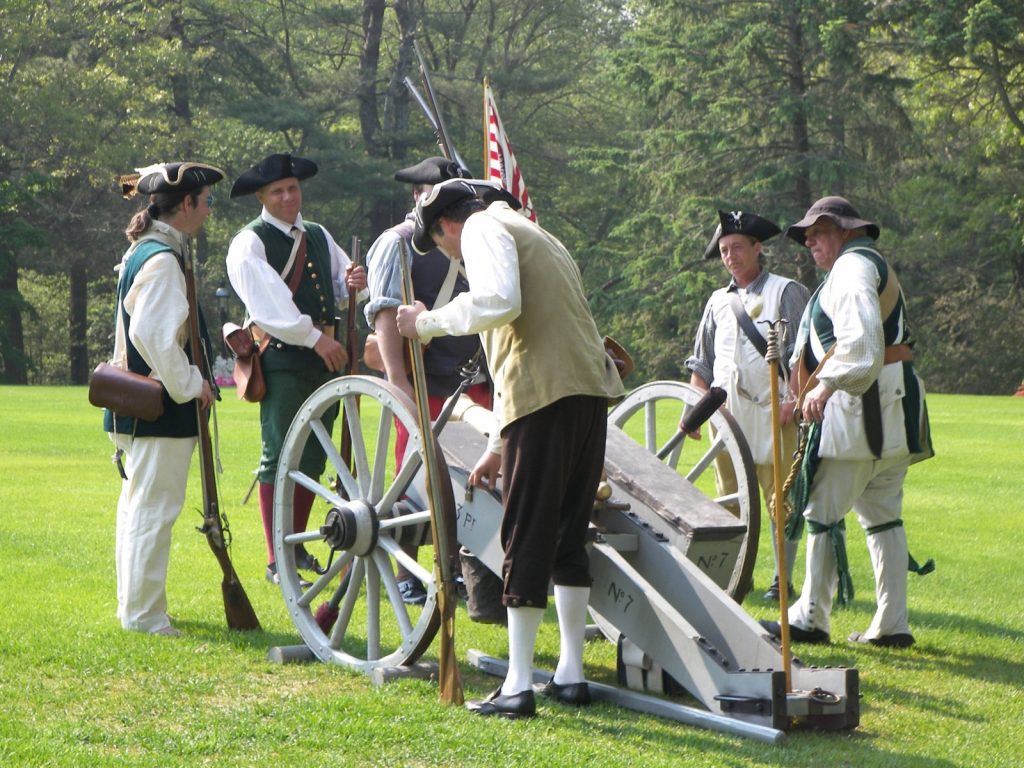To locals, this article may be old news. But to those visiting the Cape, the turkeys crossing the street causing you to stop driving, is something they might not see everyday. And, it is somewhat necessary to clarify the rareness of the story of , “Cape Cod Bear” that is said to have swam across the Cape Cod Canal back in 2012.
Although the wildlife of Massachusetts isn’t the most exotic, based on the different ecosystems we provide, a wide array of species make their home in our woodlands, hearthlands, grasslands, swamps, marshes, and ponds. In addition to the native species of Massachusetts- squirrels, foxes, rabbits, deer, & mice, Here are some of the animals you’ll likely see during your Cape Cod stay!

Wild Turkeys
Get ready to see these birds everywhere! Turkeys roamed in abundance during colonial times, according to Mass Wildlife, but hunting and development over the next century wiped them out, declaring them extinct in the Commonwealth. The last known native bird was killed in 1851! They were reintroduced on the Cape, at Camp Edwards (now Joint Base Cape Cod) in 1989. Welcome back turkeys!

Wood Duck
This colorful waterfowl spends its time foraging for food in the waters of Cape Cod like other ducks. But it breeds in trees, which is why it is called a Wood Duck. You’re lucky if you get to spot one of these iridescent purple and green-headed birds!
Osprey
They come to Cape Cod in the spring for the summer, flying from South and Central America. Each year their return to the Cape coincides with the return of the herring which migrate to the lakes and ponds, which they love to eat!
Snowy Owl
This bird is a rather rare sighting on Cape Cod. Unlike most owls, these birds are actually active during daylight hours. These birds are on the Cape during the winter, and if travel here, are looking for atmospheres closest to the Artic, their home base (wide open beaches & sand dunes).

Seals
The majority of seals seen on Cape Cod are Gray seals, and they seem to flock around Monomoy Island, and on Outer Cape beaches from Chatham to Truro. Harbor seals & harp seals also frequent here. Keep those eyes peeled, because were seals are, sharks like to follow.
Whales
Rare North Atlantic Right Whales visit Cape Cod waters in the late winter and early spring, feeding on plankton. These whales are highly endangered, with only about 350 left in the world. In the summer, a variety of whales live in the food rich surrounding ocean, like fin whales, grey whales, and humpback whales. Check out the many Whale Watching tours Cape Cod has to offer and see for yourself!
Piping Plover
These birds are now endangered. You’ll likely see signs warning you to stay off the dunes, at beaches like Sandy Neck in Sandwich where they frequent. These small, delicate shorebirds lay their camouflage eggs on coastal beaches whether they are often vulnerable to natural predators and careless human activity.

Great White Shark
The past few years, sharks sightings have increased exponentially. Scientists have a hard time pinpointing why exactly the number of these predators have gone up, but it sure doesn’t help that the number of seals has remained bountiful! Be sure to check out beach closings for the day before you head to the beach, the Lower & Outer Cape beaches are closed most often due to shark sightings, as this is where the sharks congregate.
North American River Otter
These playful and charming creatures inhabit rivers year round, from the Cape Cod Canal to Provincetown. These animals tend to inhabit the many freshwater lakes, ponds, and rivers. It’s always exciting catching one of their bobbing heads!
Horseshoe Crab
You’ll find these little guys moseying along the sea floor in shallower areas. You tend to see a lot of these in harbors. When a horseshoe crab grows, it sheds (molts) its outer skin (or shell) like a snake does. If you think you see one on the sand, it’s likely it’s molted shell that has washed ashore.

Spadefoot Toad
The term spadefoot comes from the hard digging structures on its hind feet. Rarely seen, it spends much of its time underground or hunting for small prey at night.
Spring Peeper, or “Peep toads”
This frog inhabits wooded areas near wetlands and ponds all across Massachusetts. In the spring it makes a loud, high-pitched peeping call to attract a mate. If you leave your window open at night, this is likely one of the sounds you’ll hear!
Are you interested in the wildlife of Cape Cod? Would you like to volunteer or learn more about what the Cape has to offer? Check out some of these organizations that target wildlife education in our area!
- Mass Audubon Wellfleet Bay Wildlife Sanctuary, South Wellfleet
- Cape Cod Wildlife Center, Barnstable
- Cape Cod Museum of Natural History, Brewster
- Monomoy National Wildlife Refuge, Chatham
- Mass Audubon’s Barnstable Great Marsh Wildlife Sanctuary, Barnstable
- Skunknett River Wildlife Sanctuary, Osterville
- William & Barbara Hacker Wildlife Sanctuary & Town Island Pond Conservation Land Trail Head, Harwich
- Cape Cod National Seashore, Wellfleet




